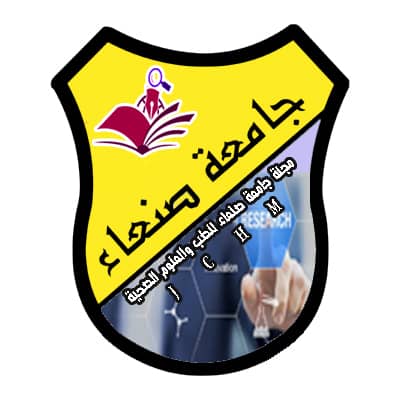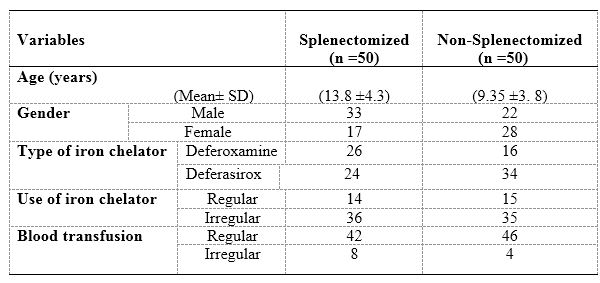Serum Immunoglobulins and Complement Factors levels in in splenectomized and non splenectomized β-thalassemia major patients.
Main Article Content
Abstract
Background: Beta-thalassemia major (ß-TM) is the most common hereditary hemoglobin synthesis disorder, often requiring blood transfusions, which, along with splenectomy and iron supplementation, increases the risk of bacterial infections and alters the immune profile of affected individuals.
Beta-thalassemia major (ß-TM) is the most common hereditary hemoglobin synthesis disorder, often requiring blood transfusions, which, along with splenectomy and iron supplementation, increases the risk of bacterial infections and alters the immune profile of the affected individuals.
Objective: This study aimed to assess the serum concentrations of immunoglobulins (IgG, IgM and IgA) and complement components (C3 and C4) in both splenectomized and non-splenectomized ß-TM patients and; correlate these levels with ferritin, blood transfusion and iron chelation therapy.
\Methods: A cross-sectional comparative study involving 100 ß-TM patients in Sana'a City-Yemen, was conducted, categorizing the participants into splenectomized and non-splenectomized groups. Sociodemographic data were collected via a structured questionnaire,, ferritin levels were assessed using the Cobas e411 method, and immunoglobulins and complement factors were quantified using the immunoturbidimetry method.
Results: The results indicate that ß-TM patients who have undergone splenectomy exhibit higher serum ferritin and immunoglobulin (IgM, IgG, IgA) levels than non-splenectomized ß -TM patients, with stable C3 and a non-significant decline in C4. Additionally, significant correlations were found between IgG, IgA, blood transfusions and iron chelation therapy, whereas C3 and C4 levels were not significantly associated with these treatments.
Conclusion: The findings indicated that splenectomy alters the immunological profile of ß-TM patients, although the precise mechanism underlying this alteration remains ambiguous; thus, analyzing serum immunoglobulins and complements levels may prove beneficial in assessing infection severity in these patients.
Downloads
Article Details

This work is licensed under a Creative Commons Attribution-NonCommercial-NoDerivatives 4.0 International License.

